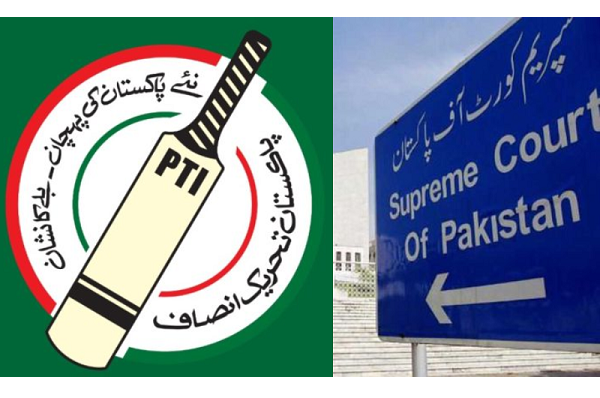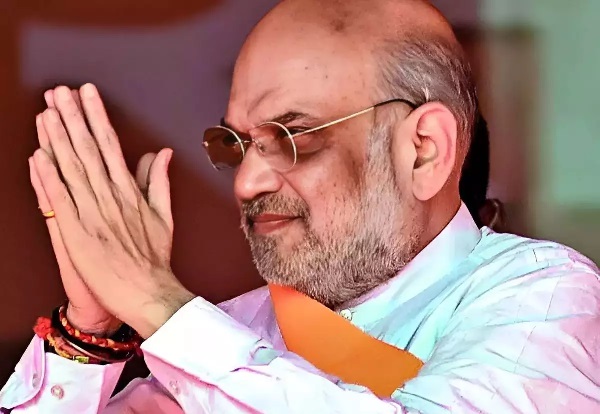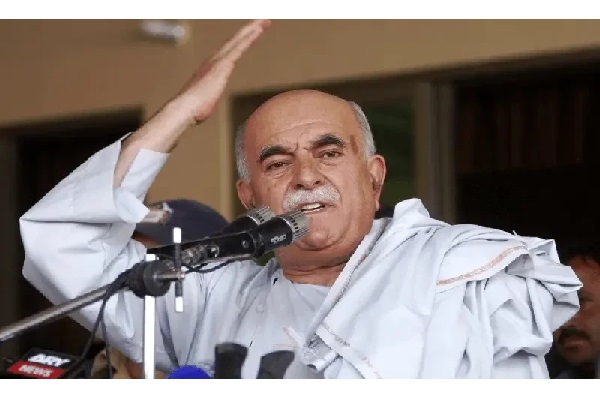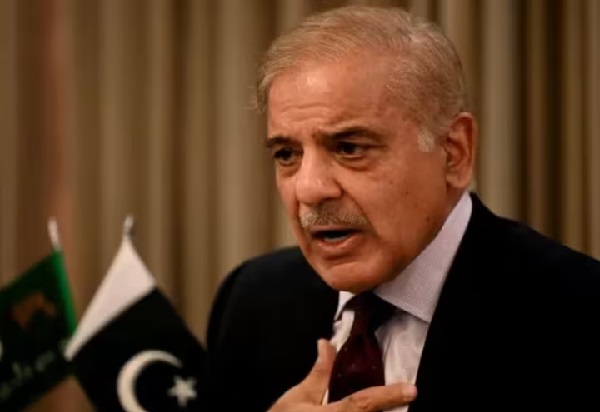NEW DELHI: Indian police said on Saturday they had arrested the social media chief of the country’s main opposition party over accusations
ISLAMABAD: The Supreme Court on Friday took up the Election Commission of Pakistan’s (ECP) challenging the Peshawar High Court’s (PHC) decision to restore the PTI’s iconic ‘bat’ election symbol.
A three-judge bench, comprising Chief Justice of Pakistan (CJP) Qazi Faez Isa and justices Muhammad Ali Mazhar and Musarrat Hilali, heard the case.
On December 22, the ECP had decided against letting PTI retain its electoral symbol for the general elections, saying that it had failed to hold intra-party polls as per its prevailing constitution and election laws.
Subsequently, the PTI had approached the PHC against the ECP order on Dec 26 and a single-member bench restored the electoral symbol of the party till January 9 and directed that the case be fixed before a divisional bench.
On Dec 30, the electoral watchdog had filed a review application in the PHC, arguing that the court had overstepped its jurisdiction. Days later, in a major blow for the PTI, the high court had withdrawn the stay on the ECP order, stripping the party of its symbol again.
Consequently, the PTI moved the Supreme Court against the restoration of the ECP ruling. On Wednesday, the party had withdrawn the appeal as the matter was already being heard by the PHC.
The same day, the PHC had declared “illegal” the ECP’s decision to revoke PTI’s iconic ‘bat’ electoral symbol and reject its intra-party polls. In the short order, the PHC had termed the ECP order as “illegal, without any lawful authority and of no legal effect”.
According to the court, the PTI was entitled to the election symbol “strictly in terms of sections 215 and 217, read with any other enabling provision of the Elections Act 2017 and Election Rules 2017”.
A day earlier, the ECP had challenged the PHC’s decision to restore the PTI’s election symbol. Simultaneously, the PTI initiated legal action in the PHC, filing a contempt petition against Chief Election Commissioner Sikandar Sultan Raja and other ECP members for not implementing the high court’s order in the case.
During today’s hearing, Hamid Khan appeared as the PTI counsel while Makhdoom Ali Khan was present as the ECP lawyer.
Akbar S. Babar, an estranged party member, also appeared before the court whereas PTI lawyer Ali Zafar attended the hearing via video link from the SC’s Lahore registry.
Gohar Ali, who was elected as the PTI chairman in the recent intra-party polls, reached the SC as well as the party’s chief election commissioner (CEC) Niazullah Niazi and lawyer Shoaib Shaheen.
The hearing has been adjourned till 1:30pm.
At the outset of the hearing, the ECP counsel came to the rostrum. When CJP Isa asked Makhdoom whether the PHC’s written order had been issued or not, the latter replied that it had not been.
The lawyer then read out the PHC order that restored the PTI’s ‘bat’ symbol. He said that the ECP had not yet received “any notice” of the PHC order, to which the chief justice said, “I have not read the case file either.”
The top judge asked Makhdoom when he would be ready to present the case, at which the counsel urged the SC to adjourn the hearing till Monday. Makhdoom further said that the political parties would be allotted electoral symbols tomorrow.
Here, the CJP observed that to adjourn the hearing till Monday, the PHC’s recent verdict would have to be suspended, adding that the apex court was ready to hear the case on Saturday and Sunday as well. The ECP lawyer then sought time till tomorrow to prepare for the case.
Makhdoom recalled that the PTI was supposed to hold its intra-party polls in 2022 and that the electoral watchdog issued a notice to the PTI for not holding the intra-party polls according to its party constitution.
Here, Justice Mazhar asked about the process for appointing the party’s CEC mentioned in the PTI’s constitution, to which the ECP lawyer said that Jamal Ansari was the previous party CEC, after which Niazi took the role.
At one point during the hearing, CJP Isa observed, “The election commission is not just a quasi-judicial body. It is a constitutional body.”
“It has two functions; one [is] regulating the affairs of political parties, which is an ongoing exercise, and the other is free and fair elections,” he added.
Upon the chief justice asking who were the other members of the PTI’s election commission, Makhdoom said “no member other than the CEC was appointed”.
However, when the CJP asked Hamid if the same was true, the PTI counsel answered it was not. The top judge then inquired about the documents pertaining to the appointment of members of the PTI’s electoral body.
Here, the PTI lawyer said he had sought time to prepare for the case, adding that he would present arguments on the ECP’s appeal not being maintainable and not having the right to claim.
Makhdoom argued that the constitution of the PTI’s election commission for the intra-party polls was “not legally correct”. When CJP Isa asked Hamid if the ECP counsel’s claim was true, he replied in the negative.
Here, the PTI lawyer reiterated that the ECP’s appeal was not maintainable, at which the chief justice directed him to present his arguments first.
Hamid contended that the electoral watchdog could not file an appeal in the apex court as a “respondent has to file an appeal, not the election commission”.
Justice Isa then asked, “Should the election commission not defend its orders?”
The ECP’s petition, submitted by former attorney general Makhdoom Ali Khan, argued that the PHC should not have proceeded with the case without first issuing a notice to the attorney general for Pakistan (AGP).
This procedural step was necessary because the legal question at hand pertained to the federal government, involving the interpretation of Article 17 of the Constitution and its relationship with the provisions of the Elections Act of 2017, it said.
The petition also highlighted that the PHC’s order conflicted with previous Supreme Court rulings, which have consistently discouraged high courts from intervening in the electoral process, which, as per the Constitution, was exclusively within the ECP’s jurisdiction.
The petition emphasised that the high court’s judgement effectively nullified key sections of the Elections Act and Election Rules by restricting the ECP’s constitutional and statutory roles in regulating and supervising intra-party elections of political parties. This interpretation contradicted the principles established in previous superior court rulings, it said.
Furthermore, it undermined the fundamental purpose of Section 215(5) of the Act, in conjunction with Rules 157 and 158, which aim to foster democracy, pluralism, and transparency within political parties by ensuring timely intra-party elections, it added.
The petition also pointed out that the PHC’s order overlooked the fact that the Elections Act was enacted under a democratic government and led to the repeal of various election laws, some of which were established during times of extra-constitutional rule.
Additionally, the PHC ruling disregarded the essence of Section 208(2) of the Elections Act, which is intended to guarantee equal opportunities for all party members to contest elections for any political party office.
It said the high court order not only rendered relevant provisions practically redundant but also enabled a political party to undertake “sham” intra-party elections without any checks and balances. This, the ECP’s petition said, was not only contrary to Article 17 of the Constitution but was also in conflict with the principles of democracy.
You May Also Like
LAHORE: A delegation of Tehreek-i-Tahafuz-i-Aien (movement for protection of constitution), led by its president Mahmood Khan Achakzai,
LAHORE: As Prime Minister Shehbaz Sharif pledges to “protect the interests of farmers at all costs”, the federal government appears reluctant






